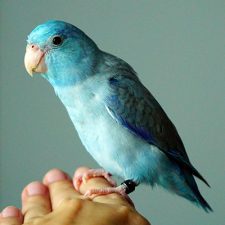It’s Bird Health Appreciation Week! This is definitely a very important topic to some of our patients. Birds are very delicate, and they need proper care to thrive. It’s also important to know how to tell if Polly is sick. A Bel Air, MD vet discusses our feathered buddies in this article.
Care
If you’ve never had a bird before, it’s important for you to do lots of research. Our feathered friends’ care needs do vary a bit. A parrot will need much more room, attention, and playtime than a finch, and would also require a different type of cage. Read up on both general bird care and Polly’s breed. Also, be sure to visit your vet regularly! Don’t be afraid to ask for specific care tips on things like diet, safety, and cage setup. That’s why we’re here!
Is Polly Healthy?
Birds that are in good shape should be active and alert, and should have healthy body weights. Their eyes should be clear, and their feathers soft and shiny. Many of our winged pals are also very active and playful. If Polly is happily dancing on the back of your chair, she’s probably feeling pretty good. Healthy birds should also have healthy, consistent appetites, and regular stools and urinates that don’t vary much in appearance, volume, or texture. They also should breathe quietly and easily … except of course when they are talking or singing! Ask your vet for more information.
Warning Signs
Polly may be able to talk, but she probably doesn’t know how to tell you how she’s feeling. However, her vocalizations can be a clue. Any changes in the way your bird speaks or sings can be a sign that something is wrong. For instance, if your colorful buddy is usually quite talkative, but is suddenly silent, there could be something wrong. Your feathered pal’s appearance can also be very telling. Missing, broken, or discolored feathers are often signs that something isn’t right. Other red flags include changes in appetite; discolored skin; red, watery, or sunken eyes; unusual posture; lumps or bumps; and changes in droppings. Your winged friend may also shift her weight, sit in the bottom of her cage, or act dizzy or disoriented. Call your vet if you see any of these warning signs.
As your local Bel Air, MD animal clinic, we’re here to help! Call us anytime.







